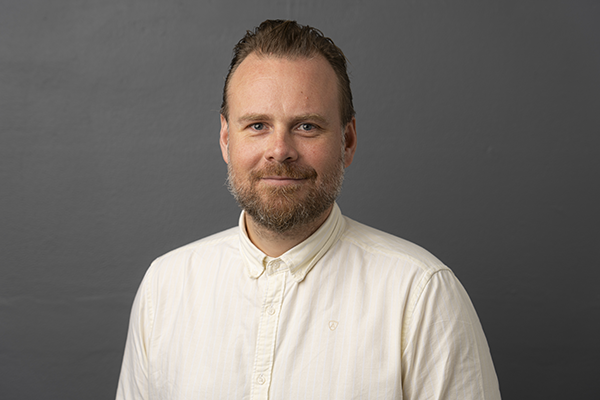Mathias Wullum Nielsen
Research leader

Project title
Global North-South Disparities in Science
What is your project about?
The global expansion of science is often lauded for its potential to drive economic and social progress. Yet, key components of this expansion, such as international collaboration, migration and knowledge transmission, reflect persistent global North-South disparities. Why is this so? While a growing body of descriptive research documents global disparities in citing-, publishing-, and patenting rates, and in collaboration and migration patterns, we know little about the processes and mechanisms that perpetuate these disparities. Therefore, I ask: How do research collaboration, migration, and knowledge transmission contribute to Global North-South disparities in science?
How did you become interested in your particular field of research?
Since my PhD, I have been interested in questions of social stratification, diversity, and career trajectories in science. The vast majority of international research on these topics is confined to European and Anglo-Saxon research systems and often lacks attention on these systems’ influence on, and interaction with, the research conducted in the rest of the world. This lack of a global perspective has always puzzled me. However, in the past ten years, improved data availability and methodological advancements have increasingly made it possible to study the social dynamics of science on a global scale. As a result of this development, my own research has also gradually become more globally oriented.
What are the scientific challenges and perspectives in your project?
Quantitative research clearly documents the extent of science's North-South divide but lacks attention to the underlying processes and mechanisms. Conversely, qualitative research has contributed important contextualised insights into the underlying processes and mechanisms, but the generalisability and scalability of these insights remain unclear. My project advances this literature by identifying specific inequality-creating mechanisms related to international collaboration, researcher migration, and knowledge transmission, and by empirically testing these mechanisms based on novel data and methods. Specifically, the project will empirically investigate (i) the roles and influence of Global South scientists in international research collaborations, (ii) the consequences of scientific migration for Global South countries’ domestic research activities, (iii) and the presumed citation disadvantage facing Global South scientists in the transmission of scientific knowledge.
What is your estimate of the impact, which your project may have to society in the long term?
It is my hope, that the project will contribute new insights to ongoing science-policy discussions on how to best ensure that the internationalisation of research does not happen at the expense of institutions, academic environments, and research talents in less affluent countries and regions. The research literature on this topic is limited, and in order to understand how best to address the problem, there is a need for much more knowledge about where, when, and why these global inequalities arise.
Which impact do you expect the Sapere Aude programme will have on your career as a researcher?
It is a great honor and privilege to receive the Sapere Aude: DFF Starting Grant. The grant will provide me with ideal opportunities to delve into an important, but overlooked research problem of high scientific and societal relevance. As part of the Sapere Aude program, I have the optimal conditions to set a completely new international research agenda on science's persistent global inequalities in close collaboration with leading experts both domestically and internationally.
Background and personal life
I live in Copenhagen with my Spanish-American wife, Mina, and our three children, Anker, Mateo, and Sofia. Family life provides me with an important break from my work as a researcher, and I spend most of my free time on children's and family activities in and around Copenhagen. Meet me on the bike path, in the swimming pool, or at one of Østerbro's many playgrounds.
View all research leaders here
Research institution
University of Copenhagen
Research field
Sociology
City of your current residence
Copenhagen
High school
Holstebro Gymnasium and HF
